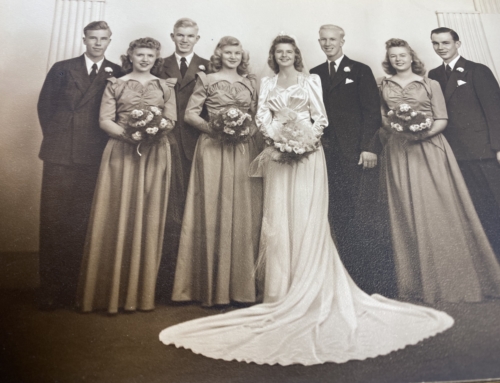There are a variety of ways in which Paul’s first letter to Corinth directly addresses some of the issues the Church faces today. There are questions of maintaining ecclesial unity, navigating different leadership styles, as well as matters of philosophy and wisdom—what some today might refer to as ‘common sense’.
Of course, Paul’s First Letter to Corinth addresses other topics such as food, sex, and lawsuits, and what to do about disagreements in these areas. Yet, as Prof. N.T. Wright encourages in his new course, ‘In the middle of it all there is love and at the heart of it there is resurrection’.
‘In the middle of it all there is love and at the heart of it there is resurrection’. Prof. Wright on 1 Corinthians Click To TweetIndeed, love and resurrection are hallmarks of the Christian faith. A less frequently mentioned aspect–although not less important—is the idea of ‘Kingdom-living’.
The Kingdom of God
Jesus had a lot to say about the Kingdom of God, which he launched on earth in his life and through his crucifixion. His kingdom removes barriers of culture, class, or ethnic distinctions and unites a new family in his name. He told parables in order to paint a picture of what it is like, so that people might see just how ‘upside-down’ it looks by comparison to imperial powers and tyrannical human governments. Jesus taught that members of his new family participate in Kingdom living by becoming less important, not more, and through weakness and humility, not bullying and pride.
In this course, Prof. Wright teaches that one of the Apostle Paul’s tasks was to announce that the crucified Jesus is in fact the anointed one—Israel’s Messiah—and therefore is now the Lord and King of the world. As such, he wants to summon the Corinthians’ allegiance to Jesus as King and encourage them to live differently: in holiness and unity with ‘Kingdom living’ in view.
The Messiah-way of Life
One of the things that most resonated with me was that the church in Corinth was surrounded by persuasive teachers, role models, and cultural influences that were trying to inform them about the true meaning of life. We hear a similar message today in the West with the myriad soundbites that tell us how to be happy and what we need in order to be complete. Prof. Wright suggests, ‘The church has to rediscover in our day what Paul wanted the Corinthians to discover: there is a Messiah-way of life’.
The church has to rediscover in our day what Paul wanted the Corinthians to discover: there is a Messiah-way of life. Click To TweetYou might wonder why this should matter to the Church today. After all, we do not tend to worry about food sacrificed to idols, so how might these ideas apply beyond theory and be embodied in our contemporary church context? This course emphasizes three aspects of Kingdom living that are particularly relevant:
- Freedom
- Fellowship
- Faithfulness.
Many of the problems in the Corinthian church arose from unrestrained freedom. The society and culture in Corinth enabled believers to freely choose to follow one teacher over against another. They were also free to interpret their worship and lifestyle practices, which sometimes confused or offended other believers.
Today, we may find ourselves in a similar situation when we overly emphasize our freedom to engage in certain practices that come at the expense of another’s conscience. Prioritizing Kingdom living might prompt us to pause and consider if what we are viewing, reading, drinking, or wearing might be a roadblock to another’s faith. I am being encouraged to press beyond asking if this or that is ‘OK’, but to also think about how my actions might negatively influence or impact another believer.
Another issue that Paul addressed when he wrote to Corinth was strained fellowship. Today we often think of fellowship in the context of local gatherings. We might be concerned with creating environments that are conducive to fellowship in our congregations and communities, or ways to promote fellowship in our small groups and ministries.
The Greek word for fellowship, koinonia, in its original context meant a family, a business partnership, or something which bound people together in a trusting relationship. Giving attention to Kingdom-living encourages us to cultivate Christian fellowship through attitudes of openness towards others and active listening to different points of view within the church. We might also examine stereotypes or biases that may create barriers to unity across denominations. Paul’s encouragement in 1Corinthians is to press beyond our personal preferences and to resist apathy and disunity.
Finally, we see how the faithfulness of God is the foundation of all Kingdom living. Paul reminded the Corinthians of what it looks like to be part of the Messiah’s family, which often meant embodying counter-cultural expressions and ways of life. He encouraged them to be the faithfulness of God’s people answering the faithfulness of God.
Scum of the Earth
One lasting idea for me is that when Paul entered a city, the people there had likely never thought of living in the way that he was living:
When we are cursed, we bless
When we are persecuted, we endure it
When we are slandered, we answer kindly
We have become the scum of the earth, the garbage of the word—right up to this very moment (1 Corinthians 4:12-13)
Kingdom living matters to the Church because it reminds us that the Christian life will often be challenged, criticized, or attacked by the culture at large. It reinforces humility over pride and unity over individualism.
It points us to the fact that everything we have and all that we are has been given to us (1 Corinthians 4:7) as a gift from God. In this course you will discover the creative ways in which God’s power is made perfect in weakness. Prof. Wright teaches the ways in which the Corinthians had to learn to embrace Kingdom living and inspires us towards the same ideal.
Jennifer Loop
Latest posts by Jennifer Loop (see all)
- Why You Need Lent: Two Perspectives - February 22, 2023
- How (Not) To Understand a Parable - October 20, 2022
- What People are Saying About ‘Ethnicity, Justice and the People of God’ - February 10, 2022





![[Video] There’s more to ‘joy and peace’ than you might think](https://www.ntwrightonline.org/wp-content/uploads/2021/03/tamara-menzi-HQ_Vh1fSWHk-unsplash-500x383.jpg)
